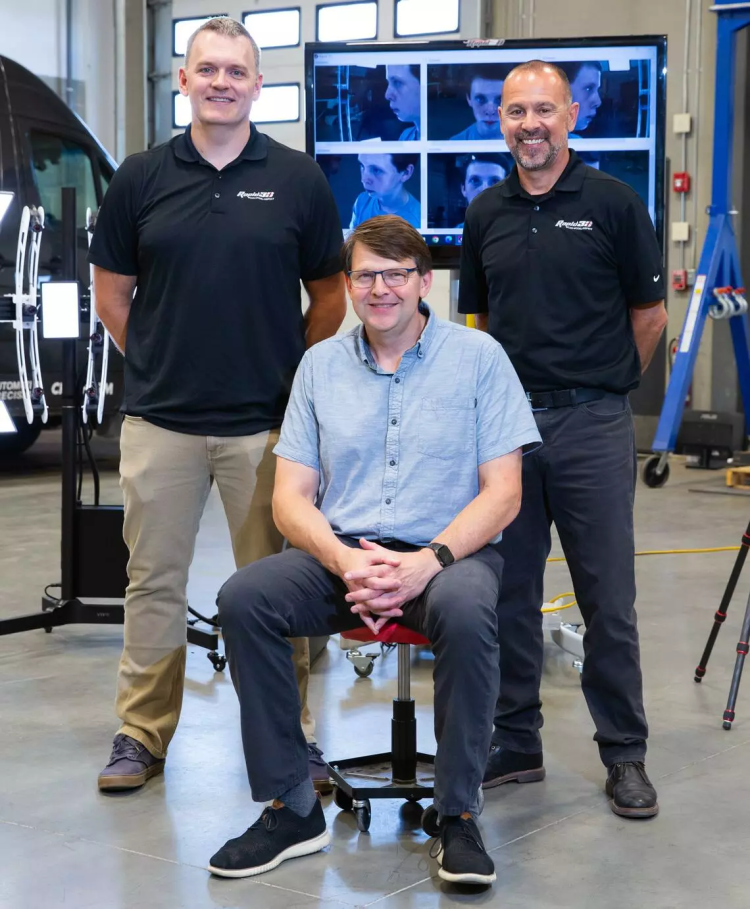University of Calgary researchers have developed a computer program that can use 3D facial imaging to identify rare genetic diseases in children. The research suggests that machine learning can be a rapid and cost-effective tool, allowing children and their families to obtain a more timely diagnosis and treatment plan. Most children with rare diseases spend years waiting for a diagnosis.
Although the program showed promising results in the research stage, it lacked a suitable 3D camera capable of handling high-volume clinical work without causing any adverse effects on patients.
"Traditional flash photography poses a risk of triggering seizures, particularly in sensitive patients, and, while capturing a photo of a newborn is manageable, the camera technology must also accommodate the quick and unpredictable movements of children with rare diseases," says Dr. Benedikt Hallgrímsson, PhD, a professor at the Cumming School of Medicine (CSM) and member of the CSM's Alberta Children's Hospital Research Institute, which developed the computer program.
Partnership started with a chance encounter
A chance encounter at the Calgary International Airport provided Hallgrímsson with the answer.
"I was going through the security line, and I heard somebody ask me if that was a 3D scanner that I had with me," says Ira Laughy, founder and president of Rapid 3D, a Calgary company specializing in 3D imaging, whose clients are primarily in the energy and agriculture sectors.

From left: Josh Hines, Benedikt Hallgrimsson, Ira Laughy. Photo Credit: Riley Brandt, University of Calgary
"This company was able to partner with us to solve a technical problem we were facing, and, together, we created a prototype," says Hallgrímsson. "In many ways, it's a great example of university-business collaboration. The result of this partnership is this beautiful camera that has been created."
The initial camera prototype fulfilled the research team's requirements perfectly, leading them to develop a second prototype half the size.
"Think about when you go into your doctor's office the room is tiny and there's a lot of stuff already in there," says Josh Hines, senior applications engineer with Rapid 3D. "So, the smaller the camera system can be made, the easier it would be to implement in more medical settings."
Impact on future disease diagnosis
"This cutting-edge technology not only accelerates the diagnosis process for rare genetic diseases but also significantly enhances the quality of life for affected children and their families," says Dr. François Bernier, MD, One Child Every Child project lead and a medical geneticist at Alberta Children's Hospital (ACH). "By providing quicker and more accurate diagnoses, we can tailor treatments earlier, reducing the emotional and financial strain on families and improving the long-term health outcomes for these young patients."
Medical geneticists in Calgary are interested in the software and have used it as one part of a clinical assessment. The technology will soon move to its permanent home at ACH so it can be further used as part of a research program. The goal is to have the system in hospitals and rural settings across Canada to aid in the rapid diagnosis of children with rare diseases.
"This is a company right here in Calgary with the unique expertise and technology to allow us to better help babies and children at Alberta Children's Hospital," says Hallgrimsson.
The work was funded by the National Institutes of Health, Canadian Institutes of Health Research and the Canada First Research Excellence Fund.
Child Health and Wellness
The University of Calgary is driving science and innovation to transform the health and wellbeing of children, youth and families. Led by the Alberta Children's Hospital Research Institute, top scientists across the campus are partnering with Alberta Health Services, the Alberta Children's Hospital Foundation, and our community to create a better future for children through research.










